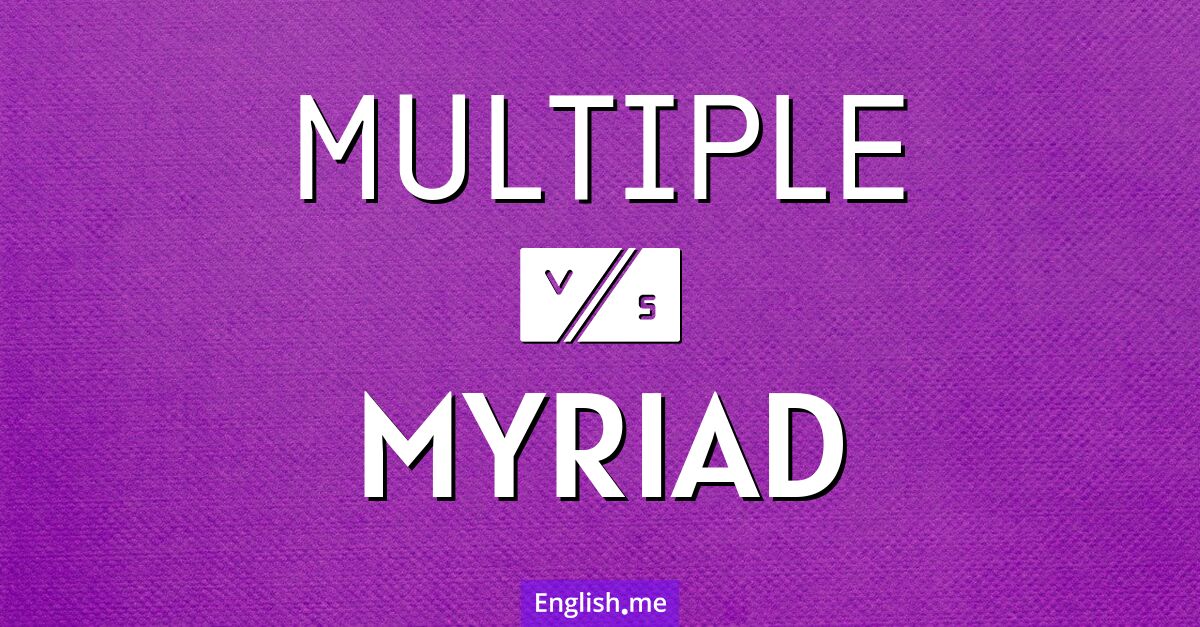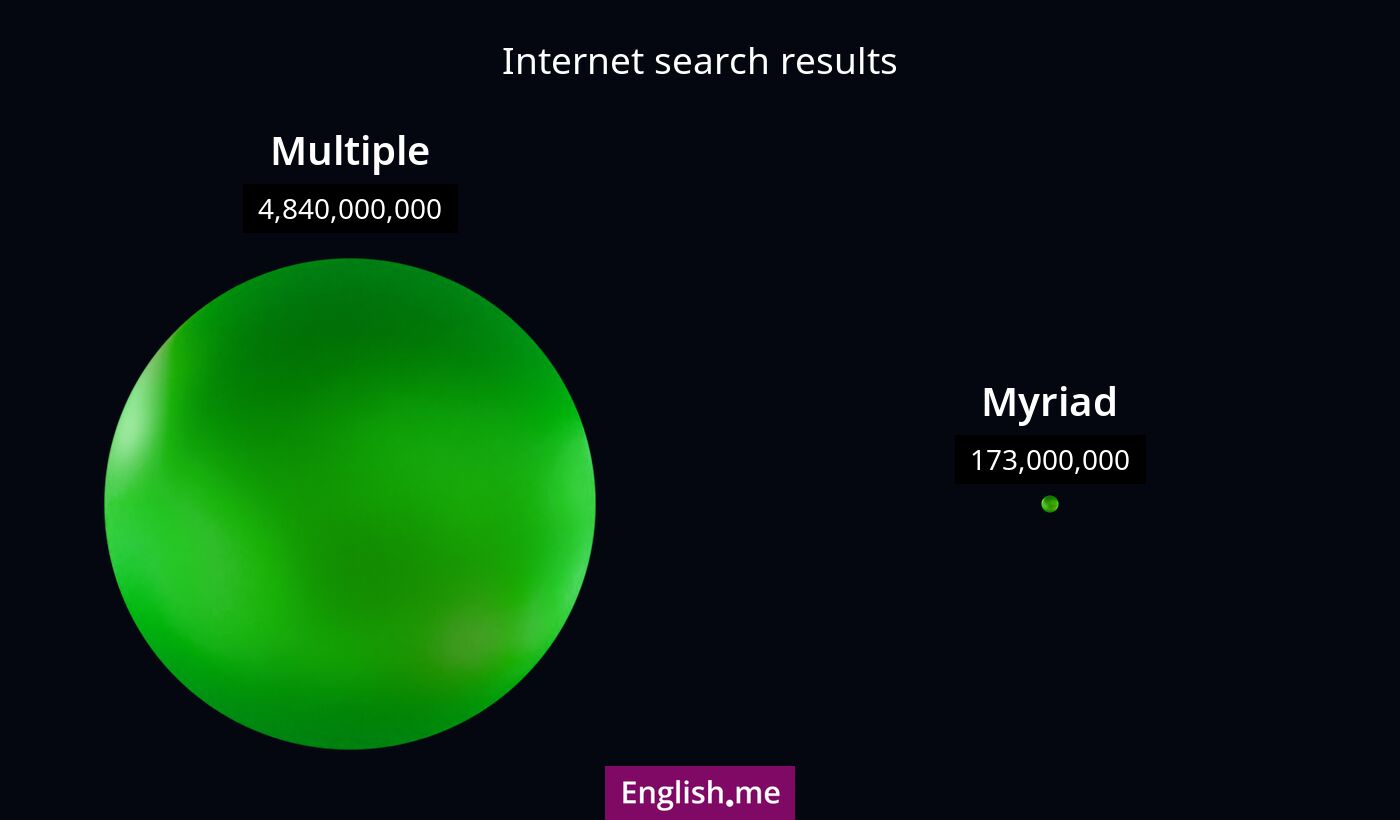Many ways to say many: exploring "multiple" vs "myriad"
Reviewed and edited by  Lloyd Cooper 02/11/2024, 21:20
Lloyd Cooper 02/11/2024, 21:20
English.me team member

 What is similar?
What is similar?
Both "multiple" and "myriad" refer to quantities or numbers greater than one.
 What is different?
What is different?
"Multiple" usually implies several or many, without specifying a particular number, and is often used to indicate more than one instance. "Myriad" traditionally means an innumerable or extremely large number and is more emphatic, often suggesting an uncountable amount.
 Which one is more common?
Which one is more common?

 Examples of usage
Examples of usage
Multiple- She gave multiple reasons for her decision.
- There are multiple solutions to this problem.
- He suffered from multiple injuries after the accident.
- The night sky was filled with a myriad of stars.
- There are a myriad of possibilities to consider.
- The project opened up a myriad of opportunities.

 English
English español
español française
française italiano
italiano deutsche
deutsche 日本語
日本語 polski
polski česky
česky svenska
svenska Türkçe
Türkçe Nederlands
Nederlands